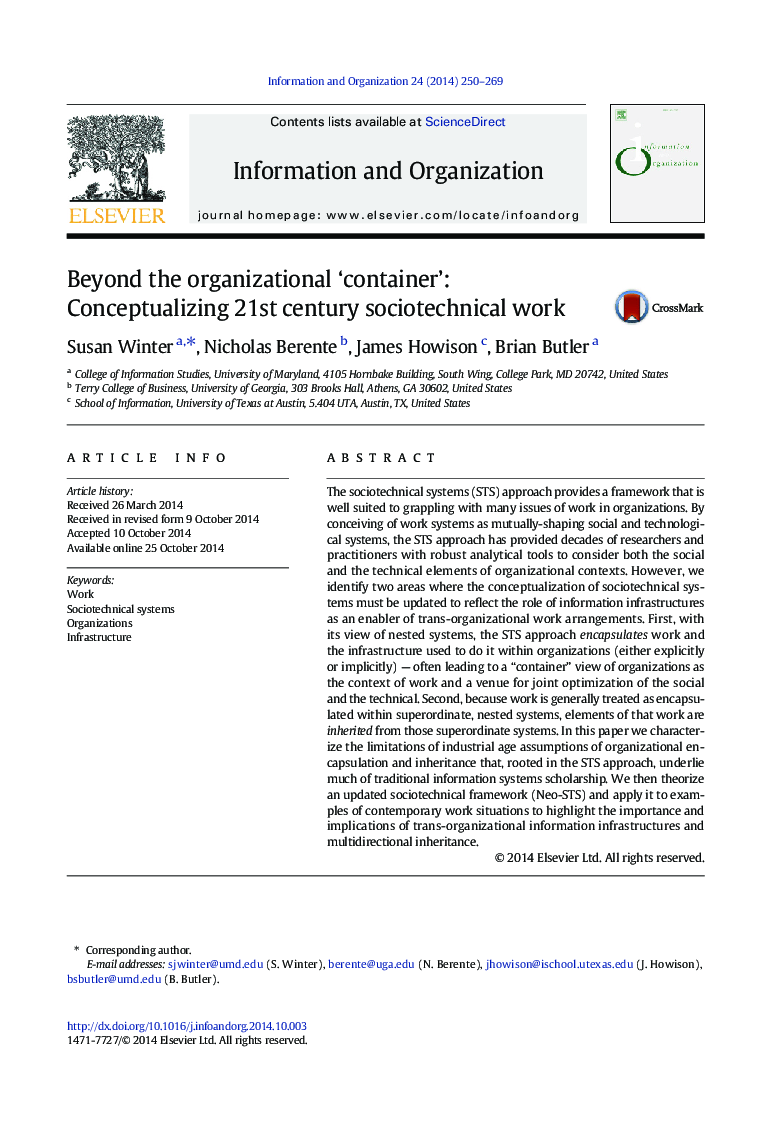| Article ID | Journal | Published Year | Pages | File Type |
|---|---|---|---|---|
| 556658 | Information and Organization | 2014 | 20 Pages |
•Characterizes limitations of the organizational encapsulation and inheritance STS assumptions of much of IS scholarship.•Theorizes a Neo-STS framework reflecting information infrastructures that enable trans-organizational work arrangements.•Applies Neo-STS to contemporary work showing role of trans-organizational infrastructures and multidirectional inheritance.
The sociotechnical systems (STS) approach provides a framework that is well suited to grappling with many issues of work in organizations. By conceiving of work systems as mutually-shaping social and technological systems, the STS approach has provided decades of researchers and practitioners with robust analytical tools to consider both the social and the technical elements of organizational contexts. However, we identify two areas where the conceptualization of sociotechnical systems must be updated to reflect the role of information infrastructures as an enabler of trans-organizational work arrangements. First, with its view of nested systems, the STS approach encapsulates work and the infrastructure used to do it within organizations (either explicitly or implicitly) — often leading to a “container” view of organizations as the context of work and a venue for joint optimization of the social and the technical. Second, because work is generally treated as encapsulated within superordinate, nested systems, elements of that work are inherited from those superordinate systems. In this paper we characterize the limitations of industrial age assumptions of organizational encapsulation and inheritance that, rooted in the STS approach, underlie much of traditional information systems scholarship. We then theorize an updated sociotechnical framework (Neo-STS) and apply it to examples of contemporary work situations to highlight the importance and implications of trans-organizational information infrastructures and multidirectional inheritance.
